Neyveli-resident and engineering professor Thayumanavan Kunapalan’s Facebook imbricate photo is a painting of a farmer ploughing the land with two bullocks. His social media bio reads, “passionate urban gardener”. And he is rightly so.
Thayumanavan grew up in Karaikal, Pondicherry. His father Kunapalan maintained a trappy garden with flowering plants, vegetables and medicinal herbs. As a child, Thayumanavan assisted him in these activities and slowly ripened an interest in the field.
He grew up to wilt an electrical engineering professor currently teaching at the University College of Engineering, Panruti. Till 2015, he was not worldly-wise to pursue his passion for gardening due to space constraints in the rented apartment. But without shifting to his own house in Neyveli, Thayumanavan is growing everything under the sun.
“I have a 1300 square feet terrace and 5.5 cents of land overdue my house, both of which are completely utilised for farming. Almost all vegetables except onion and garlic are cultivated here, organically,” says 39-year-old Thayumanavan.
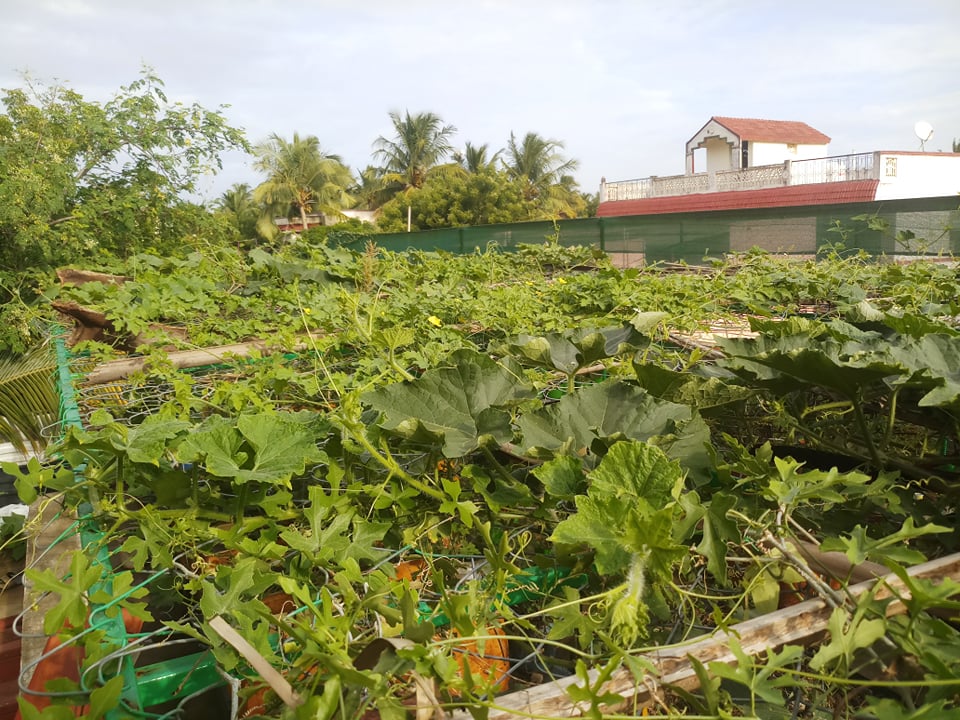
With the help of his family, the urban gardener grows brinjal, okra, tomatoes, chillies, cucumber, beetroot, radish, sweet potato, drumstick, banana, and all types of creepers and gourds. All these are cultivated in 150-200 grow tons and pots spread over the terrace. He moreover collects old refrigerators for small amounts from scrap dealers and grows crops inside them. “At present, there are 20-25 refrigerators upon my terrace filled with soil and plants,” says the creative farmer.
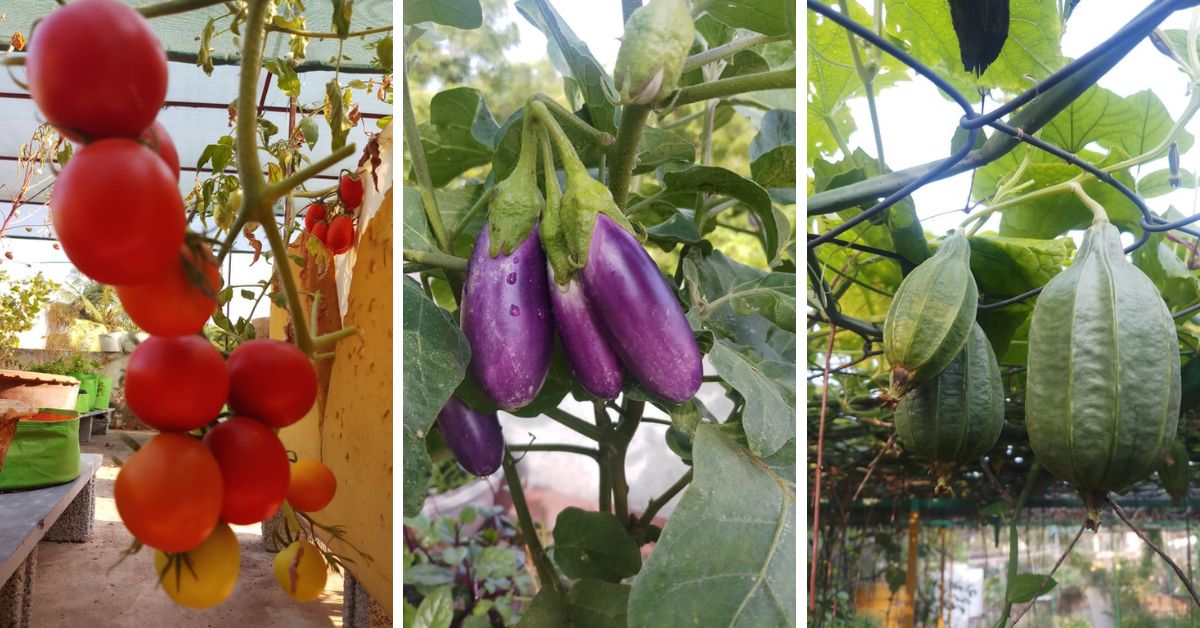
In his early days of farming, Thayumanavan used to buy vermicompost from the market to get good yields. Now, from soil mixes to pesticides, everything is prepared by him. “I used to spend a lot of money on fertilisers. Once YouTube became popular, I began pursuit some urban garden experts. The videos gave me the conviction to hoke homemade agricultural products,” he says.
Farming concoctions like jeevamritha are made by himself to enrich the plants. Natural pesticides like neem oil and mirchi/ ginger-garlic paste are moreover prepared. He adds, “I can collect virtually 20-25 grow tons full of cow dung from right outside my house.”
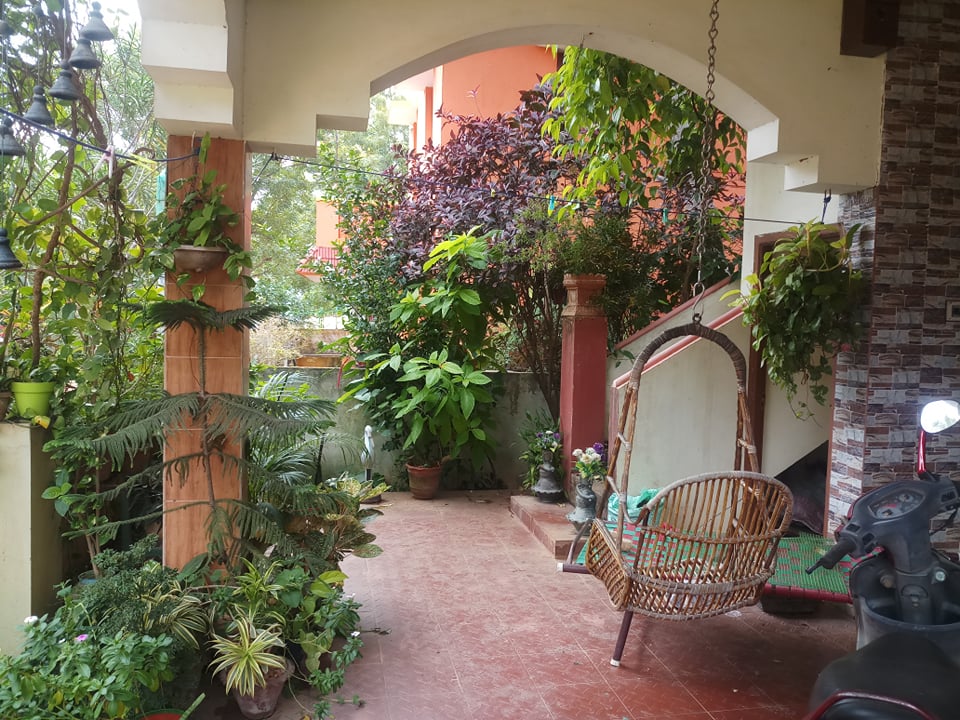
Thayumanavan named his farmland ‘Nilavanam’. “Nila is my daughter’s name and vanam means forest,” he says.
Unique soil mix
Unlike in conventional gardening, Thayumanavan doesn’t add cocopeat to his garden soil mix. He collects sugarcane waste (bagasse) from local vendors which are processed once then in a shredding machine he owns. This compost is mixed with soil and cow dung in equal proportion to which the seeds are sown, without 90 days.
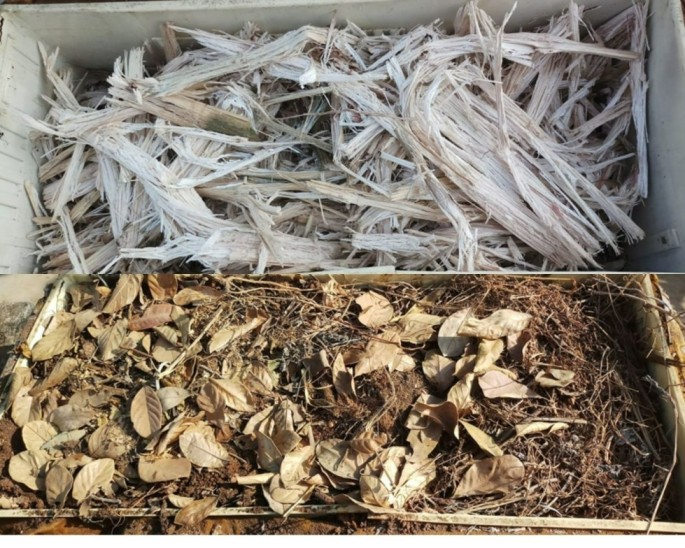
“There is no need to waste money by purchasing coco peat, which is not a sustainable option. Its effect doesn’t last long unlike my mix which can be used for up to three years. Additionally, I have prepared a kitchen waste compost which is moreover widow occasionally to the soil mix,” explains the gardener.
Thayumanavan says that the soil mix prepared this way is similar to forest soil, rich in organic matter. Employing these ideas, he can grow a surplus of vegetables.
He adds, “Initially the produce were used by my four-member family alone. But now, I sell the glut items and make up to Rs 2,000 per month. Though my aim is not to earn money but growing non-poisonous supplies for increasingly people. It’s not possible to provide the items for everyone but I requite seeds as well as tips to anyone interested,” says the farmer.
He moreover adds it is important to recycle soil just like other products and using sugarcane bagasse is one method of doing so. “If you are using a new soil mix for each sowing period, then what is the use of organic farming?” he asks.
Thayumanavan is part of a WhatsApp group of 250 members in which he sells and buys organic produce as well as seeds.
“Malabar spinach, both red and green, is the star item of my garden and grows abundantly. Many people, expressly my colleagues, ask for radish too which is a pretty rare item in the market,” he gushes.
He started poultry farming with yellow and ducks, as the first step toward integrated farming and moreover plans to set up a biogas plant soon. His wife and two daughters are in full support of all his farming endeavours.
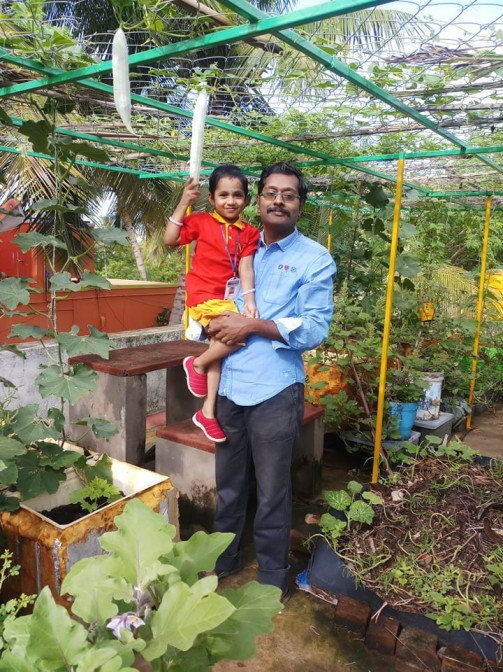
“Next time when you find an excuse to get yonder from setting up a small terrace garden, remember that it financing your health. Without all, my greatest motivation for all these activities is my family’s health,” he says.
Edited by Yoshita Rao
